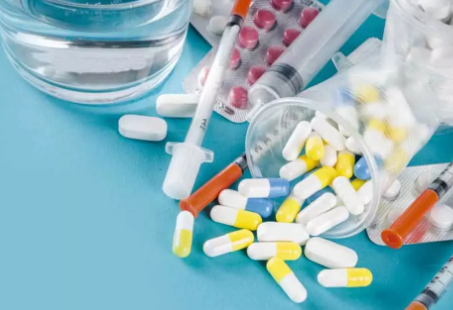Indian Pharma Sector Becomes 3rd Largest Globally, Valued at $50B
India’s pharmaceutical industry holds a prominent position globally, ranking as the third-largest by volume, and is valued at $50 billion for the 2023-24 financial year, worth $23.5 billion, while exports contribute $26.5 billion. This sector ranks 14th in production value worldwide and encompasses a diverse range of products.
Key Products and Offerings
The Indian pharmaceutical industry produces various products. These include generic drugs, bulk drugs, over-the-counter medications, vaccines, biosimilars, and biologics. The extensive product range caters to both domestic and international markets.
The pharmaceutical sector contributes to the economy. In FY 2022-23, it produced ₹4,56,246 crores, with a value addition of ₹1,75,583 crores. This industry employed approximately 9,25,811 individuals, denoting its role as a major job provider.
Educational Initiatives
The Department of Pharmaceuticals established seven National Institutes of Pharmaceutical Education and Research (NIPERs). These institutes are recognised as institutions of national importance. They offer postgraduate and doctoral programmes, focusing on advanced research in various pharmaceutical fields.
Research and Development Policies
A national policy has been introduced to promote research, development, and innovation in the pharmaceutical and medical devices sectors. This policy aims to create a robust ecosystem for innovation. It seeks to position India as a leader in drug discovery and medical device development.
The Indian pharmaceutical industry aspires to enhance its global presence further. By encouraging an entrepreneurial environment, the sector aims to encourage innovation and improve the quality of healthcare products. The focus is on building a sustainable and competitive industry for the future.
GKToday Notes:
- NIPER: The National Institutes of Pharmaceutical Education and Research are seven premier institutes in India. They focus on postgraduate and doctoral education, enhancing pharmaceutical research and development.
- Biosimilars: Biosimilars are biologic medical products highly similar to an already approved reference product. They offer cost-effective alternatives in treatment, impacting healthcare and patient access to therapies.
- Generic Drugs: Generic drugs are medications formulated to be equivalent to brand-name drugs. They provide affordable treatment options, ensuring wider access to essential medicines for patients globally.
- Value Addition: Value addition in the pharmaceutical sector refers to the enhancement of product value through processing and innovation. It reflects the industry’s contribution to economic growth and job creation.
Month: Current Affairs - December, 2024
Category: Science & Technology Current Affairs








AJIT KHIMSURA
December 22, 2024 at 7:44 amGood information keep it up